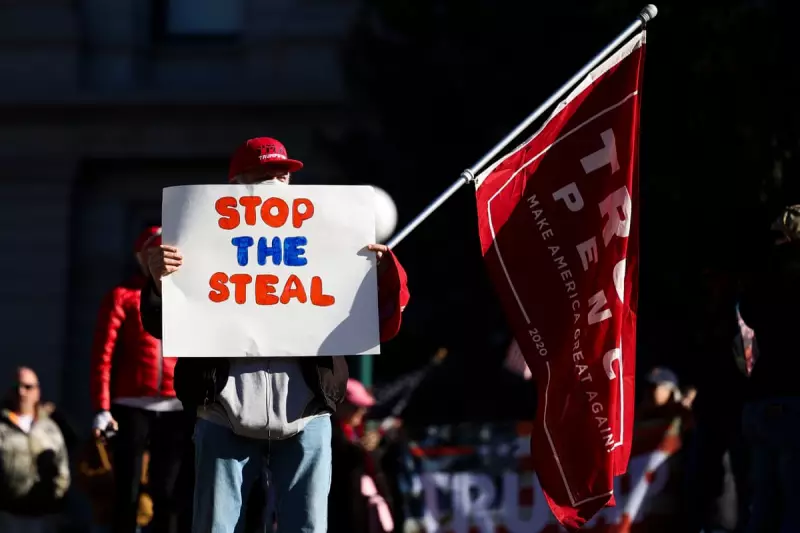
Former President Donald Trump has appeared to endorse a thoroughly debunked conspiracy theory suggesting Venezuela's leadership manipulated electronic voting systems worldwide to cause his 2020 election defeat to Joe Biden.
The Social Media Post That Raised Eyebrows
On Sunday, Trump reposted a segment from far-right media personality Lara Logan's podcast and wrote: "We must focus all of our energy and might on ELECTION FRAUD!!" While the post didn't specifically mention Venezuela, the podcast segment extensively discussed the fringe theory about Venezuelan interference in American elections.
The theory centres on claims that Venezuelan president Nicolás Maduro controls electronic voting software companies and can flip votes to favour preferred candidates. This identical claim formed part of the basis for Fox News' $787 million settlement with Dominion Voting Systems in 2023.
Ongoing Department of Justice Investigations
Trump's social media activity came just two days after revelations that his Department of Justice has been extensively interviewing conspiracy theorists pushing the Venezuela election manipulation narrative.
US attorney in Puerto Rico W Stephen Muldrow has repeatedly interviewed former CIA officer Gary Berntsen and Venezuelan expatriate Martin Rodil, both of whom claim to possess proof of the alleged scheme. The two have also briefed a taskforce based in Tampa.
Berntsen and author Ralph Pezzullo appeared as guests on Lara Logan's podcast on Friday, promoting their self-published book Stolen Elections, which details the debunked theory about Venezuelan election interference.
Military Escalation and White House Policy
The controversial social media post coincided with significant military movements in the region. The Trump administration has deployed extensive military resources, including a Navy aircraft carrier, to waters near Venezuela.
On Monday, the administration escalated pressure further by designating the Venezuelan-based Cartel De Los Soles as a Foreign Terrorist Organization. The Treasury Department had previously named it a "specially designated global terrorist" in July.
An indictment filed in 2020 alleged that Venezuelan president Nicolás Maduro heads the reputed criminal organization, though these claims remain contested.
Expert Analysis and Political Implications
David M Rowe, a political science professor at Kenyon College specialising in national security, expressed concern about the administration's decision-making process. "If it captures Trump's attention, my understanding is it is part of the process. Trump needs to find justification in his own mind for war," Rowe stated.
Professor Rowe noted that previous justifications for action against Venezuela have failed to resonate with Trump's political base. "As a kind of casus belli, a reason for war, narcoterrorism looks extremely weak. An attack on the American electoral system is stronger", he explained.
The theory appears to provide a more compelling narrative for potential military action that might appeal to Trump's supporters who have been traditionally reluctant to support overseas interventions.
Mixed Reactions and Internal White House Dynamics
When contacted by the Guardian about Trump's apparent endorsement of his theory, former CIA officer Gary Berntsen responded: "The President knows this is NOT A CONSPIRACY THEORY, he knows the truth, evidence in possession of DOJ."
However, a Venezuelan opposition figure who supports strong action against Maduro but dismisses the election claims told the Guardian anonymously that proponents of the conspiracy theory appear to have access to influential administration figures.
"I think there is someone inside the White House that these people have access to", the source revealed. "They might be overselling this crap and there are people who refuse to let go of the 2020 election conspiracy bullshit."
The White House has not responded to requests for comment regarding Trump's remarks, leaving unanswered questions about how seriously the administration considers these debunked claims as it continues its pressure campaign against Venezuela.





